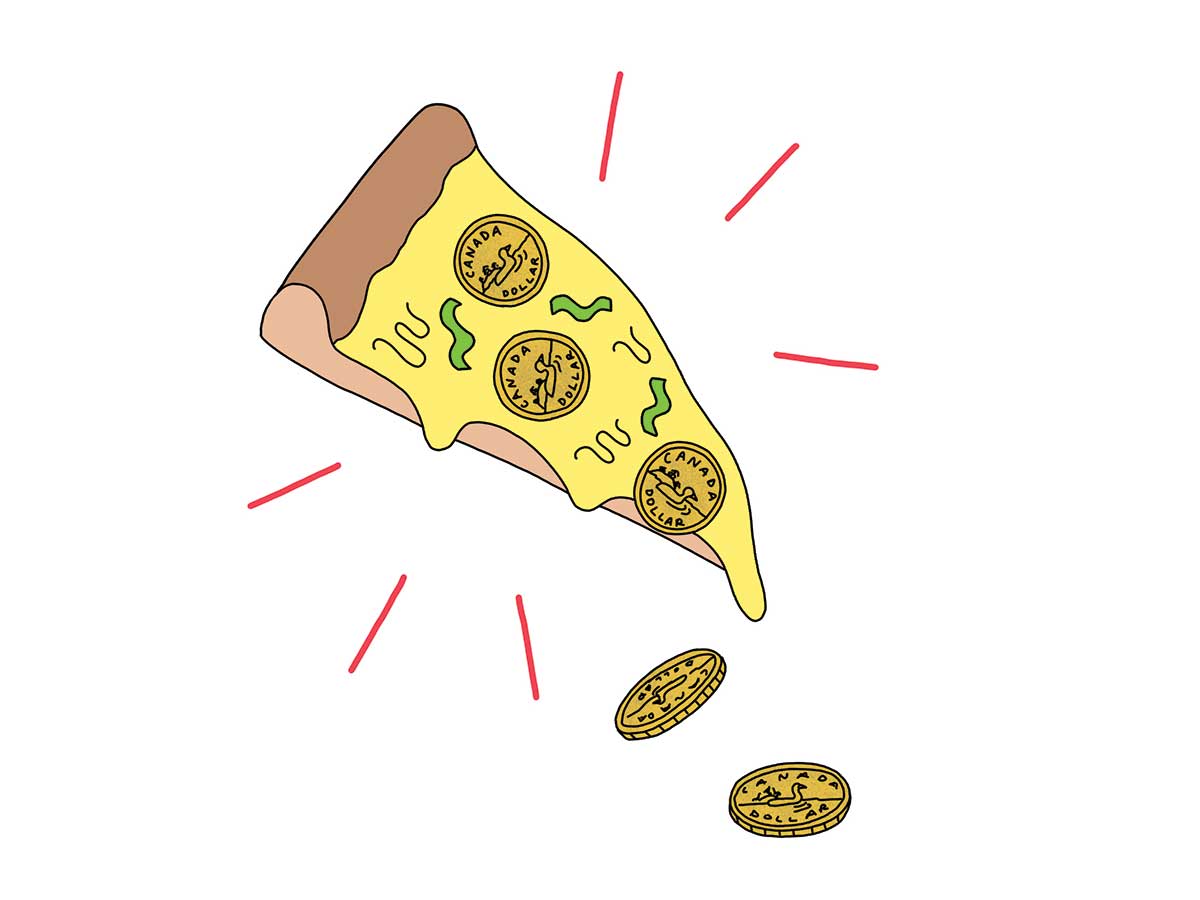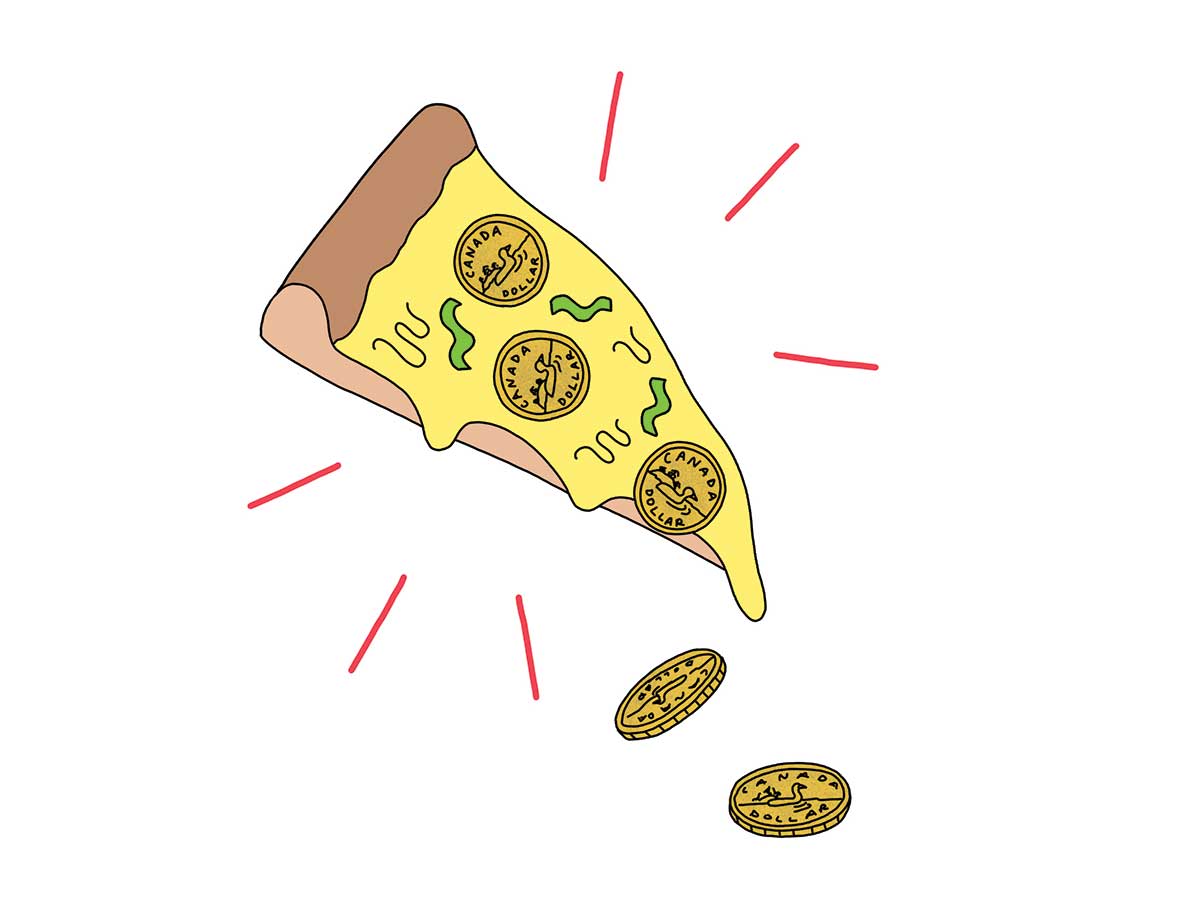
How to catch a tax evader: order a pizza
 Fraud-sniffing pizza stings are likely to become more commonplace thanks in part to Quebec’s 2011 crackdown on restaurant billing and a subsequent 2016 crackdown on bar billing (Illustration by Leeandra Cianci)
Fraud-sniffing pizza stings are likely to become more commonplace thanks in part to Quebec’s 2011 crackdown on restaurant billing and a subsequent 2016 crackdown on bar billing (Illustration by Leeandra Cianci)
During late nights at the office in tax season, there’s nothing like a delivery pizza to keep a team of CPAs full and focused on the job. But for one tax investigator with Revenu Québec, pizza delivery was the job.
In May 2017, while examining small businesses’ QST collections, Revenu Québec inspector Katherine Duval-Fillion ordered a small cheese pizza from the Verdun-based Pizza Expresso to test the shop’s compliance with the province’s sales tax act. When the pie arrived, Duval-Fillion “looked for the bill everywhere but without success.” (The delivery man later insisted it had been pinned to the box.) A subsequent investigation of Pizza Expresso’s records found that there was a 20-minute delay between her order and the time a $12.99 sale was registered in the store’s cash register—possibly for a different order altogether.
Together, the missing invoice and delayed transaction were a violation of the sales tax act, which stipulates that when a restaurant fulfills a taxable order, “the operator shall prepare an invoice containing prescribed information, provide the invoice…to the recipient without delay after preparing it and keep a copy of the invoice.” Because shop staff didn’t properly ring up Duval-Fillion’s order, she suspected they were attempting to avoid remitting tax on it. The pizzeria was fined $2,000 for the offence.
This isn’t the first time Revenu Québec has targeted pizza joints. Back in 2011, Giovannina Pizzeria Inc. of Saint-Marie, Quebec, was audited after an inspector received a handwritten receipt instead of a register printout.
Jacob Nataf, a Montreal-based partner at MNP who specializes in tax controversy and dispute resolution, says fraud-sniffing pizza stings are likely to become more commonplace thanks in part to Quebec’s 2011 crackdown on restaurant billing and a subsequent 2016 crackdown on bar billing, which involved a suite of newer, extended and more broadly applied regulations.
Instead of the antiquated practice of calling a chain’s suppliers, now technology can ferret out funny business. Visiting investigators tap into sales recording modules—mandatory, government-regulated black boxes that can be attached to cash registers to track all customer transactions—to spot any discrepancies in the accounting at bars and restaurants, sectors that historically rely on cash and, from Revenu Québec’s perspective, “allow more room for evasion and undeclared revenues,” says Nataf. “Sales recording modules can be used to trace any undeclared sales, which may lead to a broader audit—including the use of indirect methods to quantify the amount of unreported sales. For instance, an auditor can go into a restaurant and count, say, how many buns were ordered and compare that with how many were sold as part of a meal.”
Still, in order to find out how scrupulously an operation handles its dough, auditors first have the delicious task of phoning in an order. It’s a cheesy job, but someone’s got to do it.